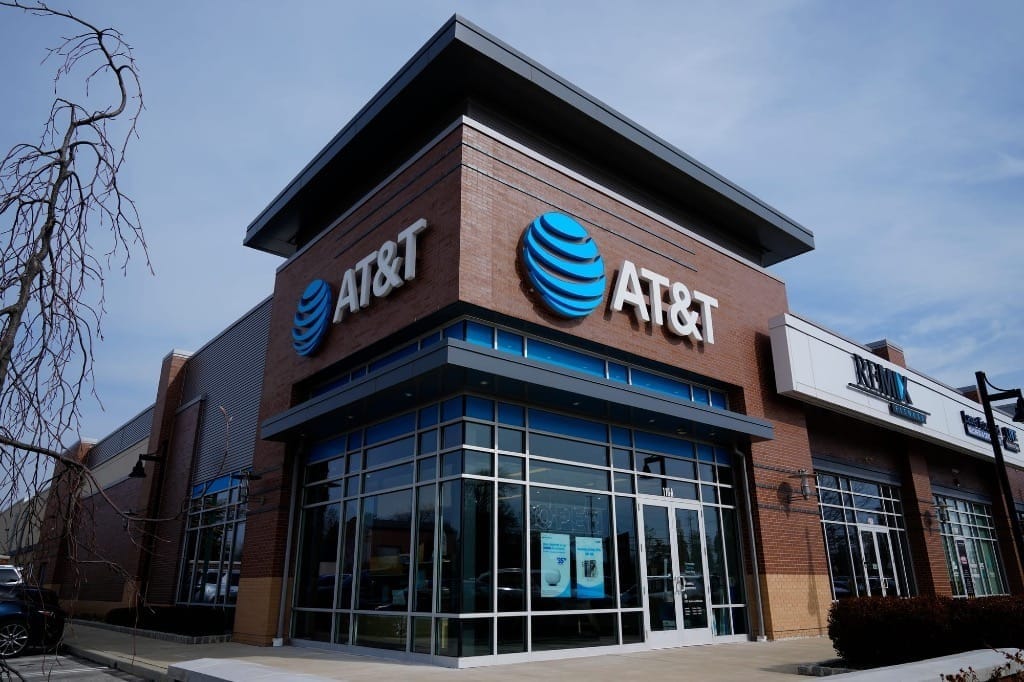WASHINGTON, Oct. 21, 2025 – AT&T’s $23 billion spectrum purchase from EchoStar won’t harm competition in the wireless industry, the companies told federal regulators.
In August the companies inked a deal that would see AT&T scoop up EchoStar’s 3.45 GigaHertz (GHz) and 600 MegaHertz (MHz) licenses. Along with another sale to SpaceX, it was part of an effort to resolve Federal Communications Commission probes into EchoStar’s spectrum licenses – FCC Chairman Brendan Carr thought the company was warehousing airwaves.
Under the deal, AT&T could lease the 3.45 GHz licenses until the transaction closes, allowing the carrier to light up the spectrum quicker because it already uses the band.
The FCC will ultimately need to review and approve the sale and leasing arrangement – work that’s delayed by the government shutdown – and the companies pitched the transaction to the agency in a filing received last month and posted Thursday.
They said the deal would make AT&T better able to compete with its fixed wireless service, home broadband offered with excess spectrum capacity.
“AT&T currently lacks sufficient spectrum in many places to offer a robust fixed wireless service and remains third in fixed wireless subscribers,” the companies wrote. “In many places, EchoStar’s spectrum will leave AT&T with sufficient capacity to support both fixed and mobile service, enabling AT&T to compete more directly with both T-Mobile and Verizon, as well as incumbent cable and other fixed broadband providers.”
As of June 30, 2025, AT&T reported about 1 million fixed wireless subscribers, compared to T-Mobile’s 7.3 million and Verizon’s 5.1 million. AT&T had initially described the service as a means of keeping customers around while the company replaces outdated copper lines with fiber, but CFO Pascal Desroches said last month the company is going to start marketing the product more aggressively.
The companies said it would also boost AT&T’s ability to compete for mobile subscribers, both with the other dominant carriers and with cable companies, which offer mobile plans through deals with Verizon and T-Mobile.
The agency agreed that the cable giants – which now count more than 18 million mobile lines – were putting competitive pressure on the major mobile providers when it approved T-Mobile’s purchase of UScellular this summer. Rural carriers and consumer advocates have urged the FCC not to be so sure of that, arguing cable’s success in the market is “entirely reliant on the will of the nationwide [carriers] to continue to allow them to compete.”
The Department of Justice said this summer it was concerned about spectrum aggregation in the wireless market and worried that smaller providers were being edged out as the big three acquired more and more airwaves. That’s a concern the FCC doesn’t share however, and analysts expect the EchoStar spectrum sales to ultimately be approved.
The FCC appears likely to view the deal favorably, as it was a response to agency concerns over EchoStar’s spectrum use. An agency spokesperson said last month the AT&T and SpaceX spectrum sales “hold the potential to supercharge competition, extend innovative new services to millions of Americans, and boost U.S. leadership in next-gen connectivity.”
The companies also said EchoStar would be a better competitor after the deal. The company was supposed to be a fourth national carrier after T-Mobile bought Sprint, but those ambitions never materialized.
EchoStar is set to decommission its towers and offer its Boost Mobile service on AT&T and T-Mobile infrastructure, which the companies said would allow EchoStar to “provide better service to its customers at less expense.”
Timelines, waivers
AT&T already uses 3.45 GHz spectrum in its network and has said that could be brought online within three months via software updates. But it hasn’t deployed any 600 MHz yet, making the licenses a more long-term investment.
In the filing, the companies said it would likely take up to two years to develop new radios to support 600 MHz and at least one other AT&T band – an effort to make efficient use of limited tower space – and another nine months to get the necessary permits to attach those new radios.
AT&T also asked the FCC to waive certain rules along with approving the deal. The company said buildout requirements related to the 600 MHz licenses would effectively prevent the company from using them if left unchanged.
EchoStar’s 600 MHz licenses currently have a deadline approaching in June 2028, which AT&T said it wouldn’t be able to meet and asked for its first deployment milestone to come three years after the deal closes. That’s planned for mid-2026.
AT&T also asked for a waiver of an FCC spectrum aggregation limit in the 3.45 GHz band which it would exceed. Even without a waiver, the 40 megahertz cap is set to expire in January 2026.

